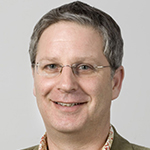Cost: £850
Book a place
Overview
Urban health is a developing discipline that requires a multi- and trans-disciplinary approach.
This short course provides an introduction to the key issues surrounding health in cities and towns.
You'll learn about the historical and political background that informs current discussions of urban health in high-, middle- and low-income countries.
You'll hear from speakers from across UCL on a range of topics, such as urban planning, gender, sanitation, food, transport, exercise, and informal settlements.
You'll discuss the following:
- What should we think of as urban health?
- How should this multidisciplinary field develop?
- To what degree it should harness the contributions of specific disciplines, including population health sciences, engineering, urban planning and architecture?
This course is run by UCL's Institute for Global Health (IGH).
Course content
Topics covered on this course include the following:
- Urbanisation and the nature of urban health
- Sanitation and its histories
- Urban transport, mobility and health
- Disability and inclusion
- Urban migration, labour and health
- Urban buildings and health
- Urban planning and health
- Urban food systems
- Informal settlements and health
- Environmental science and urban health
- Gender and urban health
- Urban infectious disease
Who this course is for
This course is aimed at those with a background and interest in global health, international development, urban studies and health sciences.
Teaching, structure and assessment
This course is taught on Mondays, Tuesdays and Fridays over two weeks.
Teaching is through lectures by specialists from across UCL and seminars which bring the different themes together.
You'll take part in group work, which focuses on the development of research questions, and presentations, which emphasise the critical appraisal of evidence.
As a short course student you won't be formally assessed, but you're expected to fully participate in group work. You'll receive a certificate of attendance on completion of the course.
This course can also be taken as a taster course, allowing you to earn UCL credits.
The taster course is assessed by a 2,000 word essay.
Find out more about the difference between short and taster courses on the IGH website.
Learning outcomes
By the end of the course you should be able to:
- outline the history of urban health
- describe key ideas and knowledge in the field of urban health, their evolution and their relative importance in different parts of the world
- critically evaluate a broad range of interventions (from programmes to policies) to improve urban health
- critically evaluate research on urban health
- identify and justify areas in urban health that require further research
Entry requirements
For the short course you'll need:
- professional work experience in a relevant area and/or a first or second-class honours degree in a relevant subject
- a good standard of English proficiency
Cost and concessions
The fees for the short course are:
- Home/EU - £850
- Overseas - £1,200
- Overseas low-middle income countries - £750
- IGH staff - free
- other UCL staff - £400
- IGH/UCL alumni - £650
The fees for the taster course are:
- Home/EU - £950
- Overseas - £1,300
- Overseas low-middle income countries - £850
- IGH staff - £100
- other UCL staff - £500
- IGH/UCL alumni - £750
Course team

Professor David Osrin
David is Professor of Global Health and a Wellcome Trust Senior Research Fellow in Clinical Science at UCL. His research concentrates on child survival in developing countries. He's conceived and collaborated on a number of cluster randomised controlled trials to improve newborn health and survival in India, Nepal and Malawi. In recent years he's become increasingly involved in research on urban health, particularly of women and children in vulnerable communities. His primary current collaboration is with the Society for Nutrition, Education and Health Action (SNEHA) in Mumbai, India.

Shivani Singh
Shivani is a Senior Teaching Fellow with IGH and the Course Director of Global Health undergraduate programmes. Her teaching focus is on urban health in South Asia. Her research examines the experiences of female migrants living in Mumbai's informal settlements.
"The fact that so many different experts spoke was an incredible academic experience, and I felt a steep learning curve."
"The lecturers were of very high quality and the topics were very diverse. The best aspect of the module was the balance between developed and developing countries."
Book a place
Course information last modified: 30 Nov 2022, 16:00
 Close
Close

